“… we are distilling the diverse expressions of this perennial wisdom into a common understanding. Stripping away the trappings of time and culture, we are collectively discovering that the essence of awakening is simply letting go of our preconceptions and judgments, returning our attention to the present moment, and there recognizing our true nature” ~ Peter Russell
“… first find peace within and you will see this inner peace reflected everywhere else. You are this peace! … That ocean of eternal peace is you. What is the difficulty that we suffer from? It is that we seek peace elsewhere and do not experience that we are peace incarnate itself …” ~ Papaji
Both Peter and Papaji are suggesting – in different words – the same thing … i.e., to “Look within” … Sounds simple and easy, but is it?
Here’s what Peter Russell says in his latest book – Seeds of Awakening:
Buddha had it easy. He was not distracted by television, the Internet, news of disasters in foreign lands, or the latest shenanigans of stars and politicians. He did not need to return phone calls, respond to the emails piling up in his inbox, or catch up with the latest tweets and Facebook postings. He did not have to work at a job in order to pay the bills. He was not worried by stock market crashes, radiation leaks, climate change, or bank failures. His mind was not ceaselessly buzzing with the dull roar of traffic, muzak, and an ever-present electrical hum. He was not bombarded by seductive advertisements telling him he lacked this or that and could not be happy until he had them. He was not embedded in a culture that sought at every turn to engross his attention in unnecessary thoughts and distractions.
Yet his path was hard. The only spiritual advice he had as a young man was from traditional Vedic priests who advocated elaborate rituals and sacrifices as the path to salvation. He had to leave home and spend years wandering through the forests and villages of northern India searching for spiritual guides. And those of any help were few and far between; the spiritual pioneers of the time were just beginning to realize that spiritual liberation came from within rather than a deity of some kind. He tried everything available, studying with the best teachers he could find, even adopting austerity to the point where he nearly died of starvation. But, in the end he had to work it out for himself. When he did he came to the then radical realization that it is our clinging to our ideas of how things should be that cause suffering, and keeps us apart from our true nature.
Today we have it so much easier. We can reap the benefit of Buddha’s discoveries—and those of his followers who added their own realizations. We can learn from the wealth of other Indian philosophies that have evolved over the centuries, and from Taoist teachings, Sufis, Western mystics, native wisdoms and other traditions. Not only do we have the benefit of centuries of spiritual enquiry in so many cultures, we can also access the wisdom of the many awakened people alive today. We can go sit at their feet, read their words, listen to recordings, watch videos or live streams on the Internet. We also have advances in psychology, neuroscience, chemistry and biology to augment our understanding and experience. Most significantly, we are distilling the diverse expressions of this perennial wisdom into a common understanding. Stripping away the trappings of time and culture, we are collectively discovering that the essence of awakening is simply letting go of our preconceptions and judgments, returning our attention to the present moment, and there recognizing our true nature.
In short, on the one hand, it is becoming easier and easier to awaken; on the other hand the times we live in make it ever-more challenging. How do they balance out? Overall, is it any easier or any harder than 2,500 years ago? Who is to say? But we can shift the balance in our favor by taking advantage of the growing wealth of wisdom that is now so readily available, choosing the most effective and direct paths to awakening. Yet being ever mindful of the distractions of our contemporary world that make it so challenging to stay awake.
Above text is a chapter (The Easiest of Times; The Hardest of Times) from Peter Russell’s book, aptly titled, “Seeds of Awakening.” My (Sanjiv) initial reaction, upon reading it, was: Simple, captivating, engaging, very readable, deeply insightful … full of very relatable “wisdom gems” … truly an exquisite distillation of “perennial wisdom {without} the trappings of time and culture” …
The various chapters are, or contain, “seeds” that can blossom into awakening, i.e., Effortless Meditation, Forgiveness, Returning to Natural Mind, Kindness … are all “essential beginnings or elements of wisdom” or “seeds” that, when nourished, will/can flower into awakening. And, one of the most important, and useful, aspects of Peter’s book is that these seeds are very relatable for anyone from any walk of life. One does not have to know, or learn, any tradition – just absorb the content, incorporate/integrate it into one’s daily rhythm – earnestly … then see where it leads. As a minimum, it offers the possibility to increase whatever level of peace and contentment one has.
This 6-part series is an in-depth preview of the book through several chapters: REdiscovering Timeless Wisdom, Kindness, Meditation, Mindfulness,The Self Does Not Identify With Anything, and Forgiveness.
Seeds of Awakening is listed in our book library and can be purchased on Amazon by clicking here. Unless otherwise noted, all text below is directly excerpted from Peter’s book and published here with his permission.
Also, Thanks to Peter’s generosity we are able to offer a FREE downloadable PDF for each of these six chapters – link available in each part of this series.
Rediscovering Timeless Wisdom
One of the emerging (possibly dominant?) interests, or themes, of our time is that collectively or individually we are rediscovering timeless wisdom … as Peter says:
We live in unprecedented times. Science is answering age-old questions about the nature of reality, the birth of the cosmos, and the origins of life. We are witnessing technological advances that a century ago would have seemed science fiction, or even magic. … along with these rapidly unfolding changes is another development that’s passing largely unnoticed. We are in the midst of a widespread spiritual renaissance, rediscovering in contemporary terms the timeless wisdom of the ages. …
… a spiritual renaissance that differs significantly from those of the past. We are no longer limited to the faith of our particular culture; we have access to many wisdom traditions, from the dawn of recorded history to the present day. Moreover, the insights of contemporary teachers from around the planet are readily available in books, audio recordings, videos, and on the Internet. None of this was possible before.
… We are seeing through the apparent differences of the world’s faiths, past their various cultural trappings and interpretations, to what lies at their heart. Instead of the truth becoming progressively diluted and veiled as it is passed on, today our discoveries are reinforcing each other. We are collectively honing in on the essential teaching. …
There is a growing recognition that awareness of our true nature does not need studious reading of spiritual texts, years of meditation practice, or deep devotion to a teacher; only the willingness to engage in a rigorously honest investigation into the nature of awareness itself. Not an intellectual investigation, but a personal inquiry into who and what we truly are.
Kindness
“… My religion is very simple. My religion is kindness …” ~ H. H. The Dalai Lama
Indeed, Dalai Lama captures the essence or “… The Golden Rule found at the heart of the world’s spiritual traditions …” So, it’s not surprising that as Peter explores timeless wisdom he, naturally, considers Kindness … he addresses the vicious circle of hurt/un-kindness, how to break it, and speak our truth with kindness … below are some highlights – click here for the full post.
Deep down we are all of the same kind. We all want to feel at ease, to be treated with respect, to feel cared for and appreciated. … This is the universal bottom line of every human relationship. We all want to feel cared for. We want to be treated kindly.
Our intention then becomes: How can I communicate so that the other person does not feel attacked or rejected, but cared for and respected?
In the Bible it is said: “All things whatsoever that ye would that men should do to you, do ye even so to them.” Similarly, in the Koran we find, “No one of you is a believer until he desires for his brother that which he desires for himself.”
If we all applied this to everyone we met or spoke to, the world would be a very different place.
Effortless Meditation
“… Meditation is not evasion; it is a serene encounter with reality …” ~ Thich Nhat Hanh
“… To listen to the silence, wherever you are, is an easy and direct way of becoming present …” ~ Eckhart Tolle
True meditation “… simply means being present to what is: … the spaciousness in which everything is arising, the listening stillness, the aliveness and vibrant present-ness of everything …” ~ Joan Tollifson
Meditation is one of the key teachings in the annals of timeless wisdom … in this chapter, Peter unpacks the statement Meditation “… should be effortless …” and shares his thoughts on how to be effortless … and the opportunities that lie within that exercise … and that “… when it comes to the basic skill of relaxing into a quieter state of mind, effort generally turns out to be counter-productive …” … below are some highlights – click here for the full post.
… So with the mind; it is restless because we are seeking something. And what is it we are seeking? We want to feel better–to be happier, more at ease, content. He argued that if we give the mind a taste of the inner contentment it is looking for, it will be attracted to it and begin to settle down of its own accord.
… the practice is not learning how to stay present, but learning how to return to the present. If you wander off a hundred times, that is a hundred opportunities to practice gently returning your attention to the present.
Mindful Living by Returning To Natural Mind
“Being mindful means that we suspend judgment for a time, set aside our immediate goals for the future, and take in the present moment as it is rather than as we would like it to be.” ~ Mark Williams
“Wherever you are, be there totally.” ~ Eckhart Tolle
Another key teaching from timeless wisdom is mindful living which is also Returning To Natural Mind. In this chapter, Peter covers the “natural state of mind” – the challenges involved and why we are not in that state and what we can “do (a paradox)” to be in that state …. “… We simply need to let go of any attachments as to how things should or should not be; become aware of our experience in the present as it is, without resistance or judgment …” this is the crux of mindful living … below are some highlights – click here for the full post.
Behind all our endeavors lies the desire to feel good—to be happy, feel content, relaxed, and at ease. No one wants to be in pain or to suffer unnecessarily. This is our true bottom line. We may think we are seeking some external goal, but we are seeking it in the hope that, in one way or another, we’ll feel better for it.
Why then, are we so seldom at peace? …
Time and again they’ve told us that we don’t need to do anything, or go anywhere to return to this natural state of ease. We simply need to let go of any attachments as to how things should or should not be; become aware of our experience in the present as it is, without resistance or judgment {the essence of mindful living}. Then—and this is key—let the attention soften and relax.
Attention: The Spotlight of Awareness
“To be aware of little, quiet things, you need to be quiet inside. A high degree of alertness is required. Be still. Look. Listen. Be present.” ~ Eckhart Tolle
In one of the chapters Peter asserts that The Self Does Not Identify with Anything (also the title of the chapter) … He unpacks this assertion by delving into attention – one of the focuses (or foci) of awareness or as he says: “… Attention can be thought of as the spotlight of awareness … Rather than the Self identifying with an experience, it is that our attention becomes absorbed in the experience …” … below are some highlights – click here for the full post.
… the pure Self, does not believe or think anything. It is that which is aware of the thoughts and beliefs that are arising—the “knower” of all this.
When the issue at hand seems important for our well-being, the seamless whole of our experience is divided in two. There is “me”, the organism that needs to be taken care of, and there is the world around that may need to be changed in some way—or conversely be prevented from changing. A sense of being an individual self arises. It identifies itself with the body, and believes it is one who is thinking and acting in the world. However, as you begin to explore this sense of a separate self, you discover that it is just a set of thoughts and beliefs. It is another experience arising in awareness …
So when we say we have become identified with the ego, with our thoughts or the body, what is actually happening is that the attention has become so absorbed by these aspects of our experience that they dominate our reality. For a while, the fact that we are much more than that does not get a chance to enter. We get lost in the plot again, and forget we are that which is watching the drama unfold.
Forgiveness
“… I have found that the greatest degree of inner tranquility comes from the development of love and compassion. The more we care for the happiness of others, the greater is our own sense of well-being. Cultivating a close, warmhearted feeling for others automatically puts the mind at ease. It is the ultimate source of success in life …” ~ H. H. The Dalai Lama
Forgiveness means “… “to let go”—as when we let go of a rope, or something else we are holding on to. We’re releasing our grip on something …”~ Peter Russell
Peter digs into the what, why, and how about Forgiveness – an essential aspect of timeless wisdom: he defines it, talks about why it is challenging to undertake, delves into its “core,” and suggests that approaching it with compassion vs judgement is the key.
He notes that it is not a weakness in the forgiver nor is it condoning the perpetrators actions: “…This is not to imply we should simply accept their behavior, or even condone it. We may well feel the need to give them feedback or make suggestions as to how they might behave better, but let us do so from a compassionate heart rather than a judgmental mind. …”
… With forgiveness, the grip that we’re releasing is a mental one. We’re letting go of the judgments and grievances we are holding against a person, and our beliefs about how they should have behaved.
… We can begin to see them through the eyes of compassion rather than judgment.
_ _ _
Imagine all “sectors/segments” of society “taking in” this book … imagine it being a core part of Universities/Corporations/other-societal-segments across the globe … imagine an education system where this is part of the basic curriculum at all “levels” – each “level” tailored for that demographics! …
No trappings of any religion or “system of thought” just simple, relatable guidance for everyday living that, if applied earnestly, could bring about peace and contentment – for all! … bold claim but see what it does for you 🙂
Again, here are all the parts of this series: Part 1: Rediscovering The Timeless Wisdom, Part 2: Kindness, Part 3: Effortless Meditation, Part 4: Mindful Living by Returning To Natural Mind, Part 5: Attention: The Spotlight of Awareness, and Part 6: Forgiveness: A “Seed” of Awakening.
Above text excerpt (all italicized text) is from Peter’s latest book Seeds of Awakening and is published here with his permission.

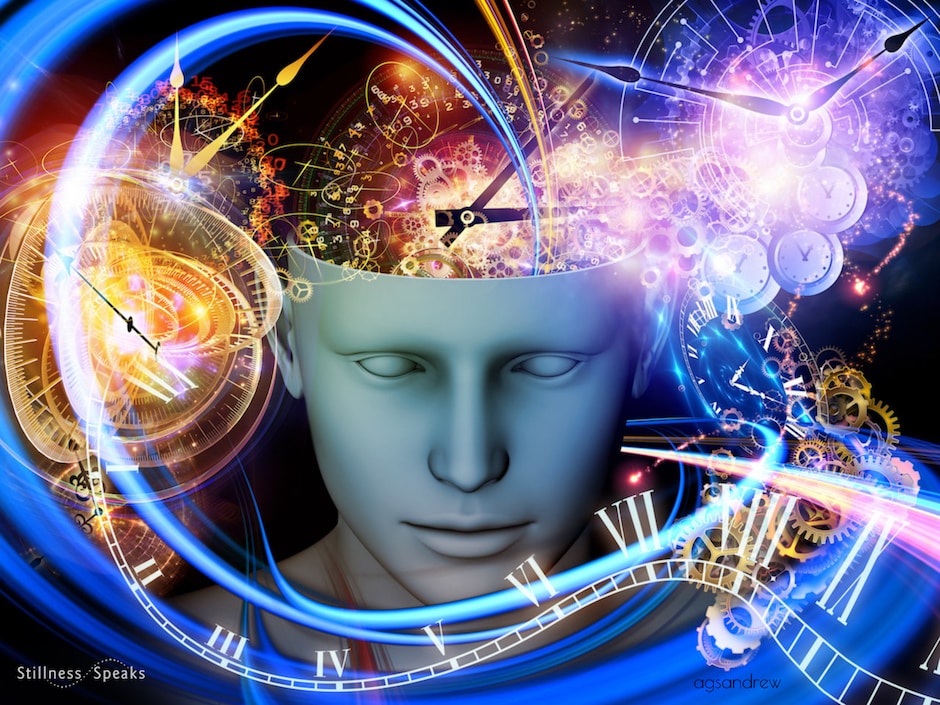

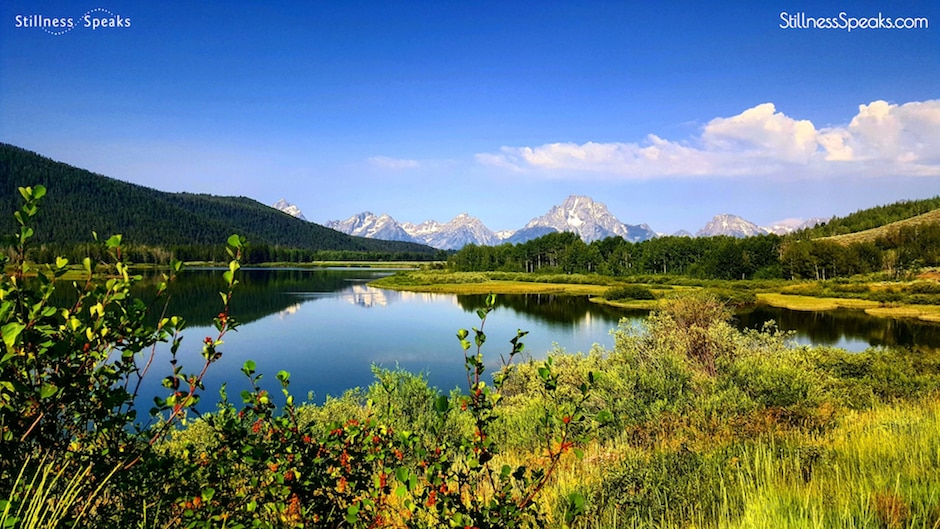
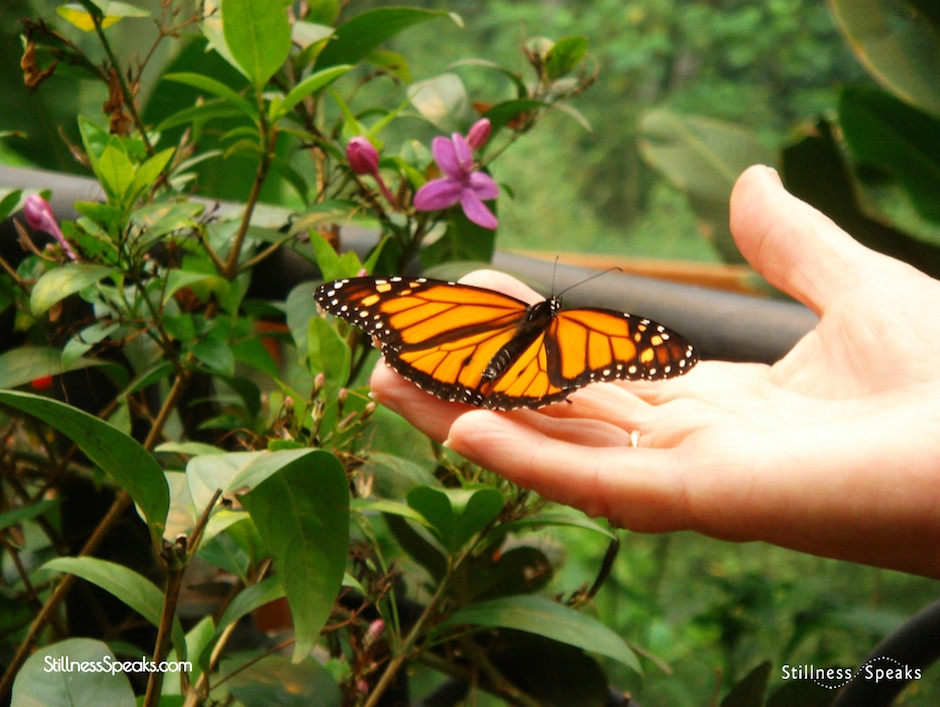

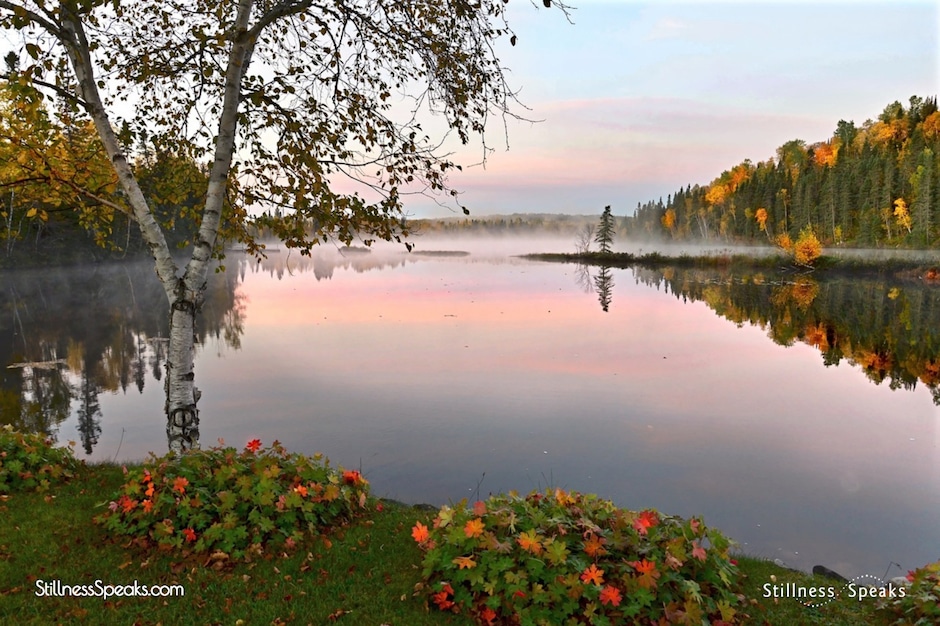

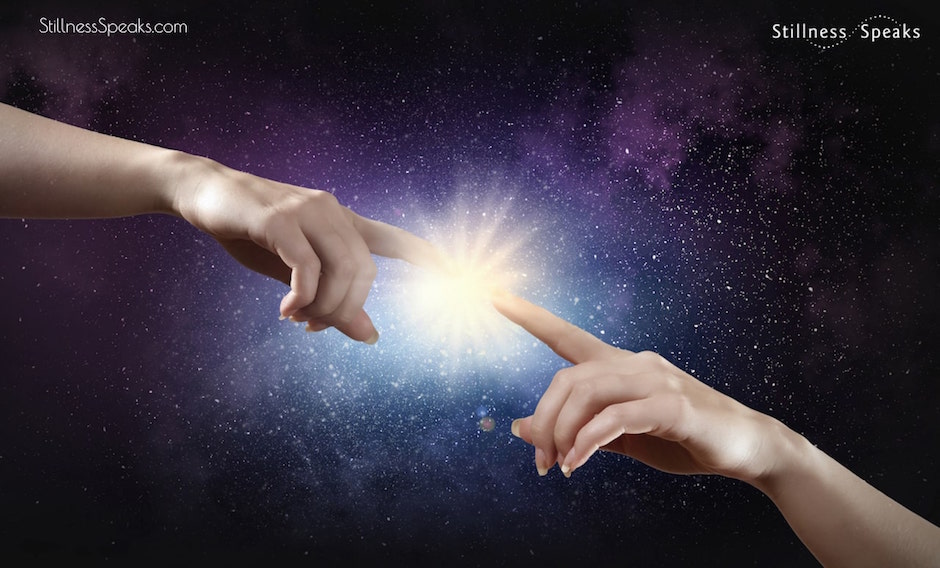





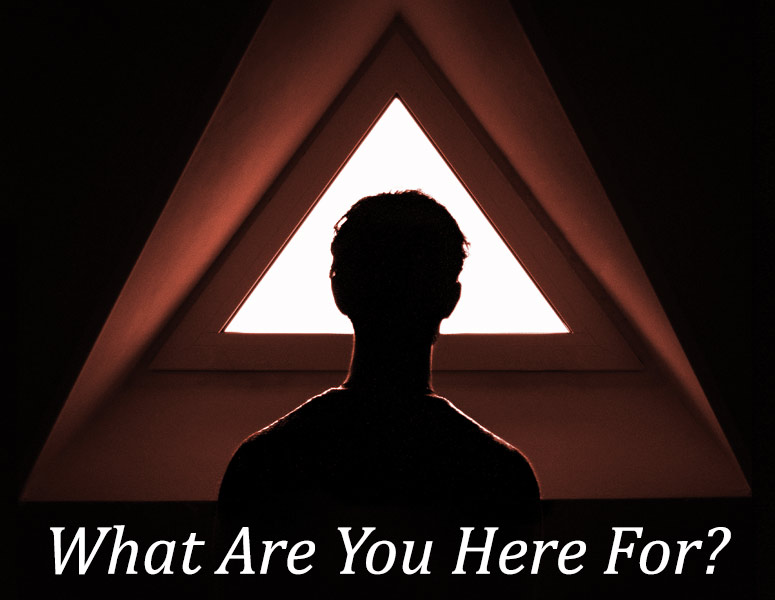
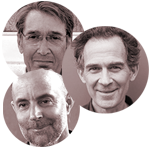
Peter Russell : If the physical universe is entirely composed ofinsentient and unconscious matter, as the current scientific worldview holds, then how does consciousness and subjective experience happen? Dead and insentient matter in a complex arrangement such as a brain should not give rise to sentience, since it wasn’t there to begin with. Yet somehow out of insentient matter comes consciousness and subjective experience, which are entirely different phenomena than insentient matter.